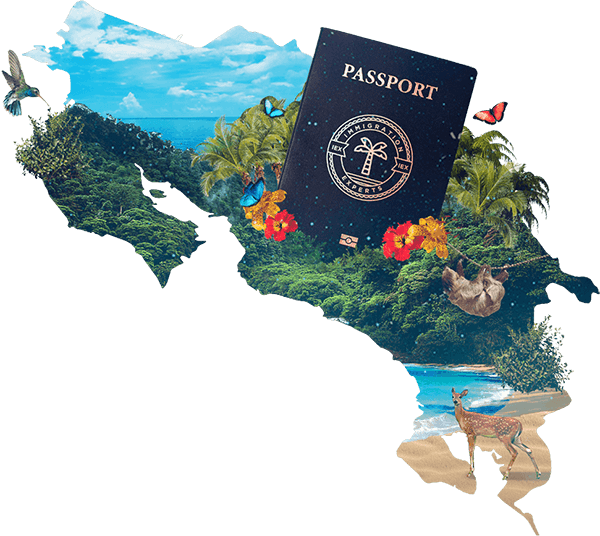Navigating the corporate tax landscape in Costa Rica requires a comprehensive understanding of the obligations and deadlines that govern both active and inactive corporations. The country’s tax regime is designed to ensure that all businesses, regardless of their operational status, contribute to the national economy and comply with legal mandates. This article offers a detailed overview of the tax responsibilities that corporate entities face, from fixed annual fees for inactive corporations to variable taxes for those in active business, and highlights the essential role of services like Immigration Experts in facilitating compliance and legal standing in Costa Rica.
Corporate Tax for Inactive Corporations:
Inactive corporations, although not engaging in active business, are still required to fulfill certain legal obligations. The Corporate Fee, approximately $US120, is a fixed annual payment mandated by the Tax Authorities for all registered corporations, regardless of their level of activity. This fee is crucial for maintaining your corporation’s good standing and legal compliance.
Active Corporations and Corporate Tax:
For corporations actively engaged in business, the corporate tax is a variable amount. It is calculated based on the income reported in the previous fiscal year’s tax declaration. This progressive tax rate ensures that your corporation’s tax liability is aligned with its financial performance, contributing fairly to the nation’s economy.
Payment Deadline: January 31st
Corporations established after January 31st are not exempt from the Corporate Fee. Instead, the fee is prorated from the date of formation to the end of the fiscal year. This ensures that new businesses contribute to national obligations while recognizing their partial-year operation.
Mandatory Registration:
Registration with the Costa Rican Tax Authorities is a critical step for every corporation. This process includes obtaining a unique NITE number, essential for all tax-related activities. Additionally, registration provides credentials for accessing the Tax Authority’s systems, enabling efficient handling of your tax affairs.You can either register as Active or Inactive corporation.
Contribution to Education and Culture:
In addition to taxes, corporations are required to contribute to societal development through a yearly Education and Culture fee.
Deadline: March 31st
Resident Agent Requirement:
For corporations without local legal representation, Costa Rican law mandates the appointment of a Resident Agent. This agent acts as your legal liaison, ensuring that your corporation adheres to local laws and regulations. Immigration Experts provides experienced attorneys for this role, offering peace of mind and legal assurance.
Corporate Registered Office:
Establishing a legal address with Immigration Experts offers several benefits. It ensures that any official notices or legal communications are promptly received and addressed. This service is particularly beneficial for international clients, providing a reliable point of contact within Costa Rica.
Annual Shareholders Meeting:
The Costa Rican Commerce Code mandates that all corporations, active or inactive, conduct an annual Shareholders Meeting. This meeting is crucial for making key decisions and maintaining corporate governance. Immigration Experts assists in organizing and documenting these meetings, ensuring legal compliance.
Registry of Transparency and Final Beneficiaries:
Recent legislation requires corporations to declare their shareholders or beneficial owners annually. This transparency measure combats financial crimes and enhances corporate accountability. Immigration Experts navigates this process for you, ensuring full compliance with these regulations.
Deadline: April 30th
Property Taxes:
Real Estate Tax: This annual tax, based on your property’s declared value, supports local infrastructure and services. Immigration Experts can manage these payments, ensuring your property’s compliance and preventing any penalties.
Luxury Home Tax: For high-value residential properties, this additional tax reflects the increased value of premium real estate. Our team provides expert assistance in calculating, declaring, and paying this tax.
Deadlines:
January 15th for Luxury Home Tax.
March 31st for Real Estate Tax.
Fulfilling corporate tax obligations in Costa Rica is a multifaceted process that demands attention to detail and an understanding of the legal framework. Whether it’s the fixed annual fee for inactive corporations, the variable corporate tax for active entities, or the specific contributions towards education and culture, each requirement plays a vital role in maintaining your corporation’s good standing and legal compliance.
With deadlines throughout the year and the necessity of registering with the Costa Rican Tax Authorities, corporations must stay vigilant to meet their obligations. Leveraging the expertise of Immigration Experts can significantly ease this burden, offering guidance and support through every step of the tax compliance process, from the appointment of a Resident Agent to the management of property taxes. In the ever-evolving landscape of corporate taxation, having a knowledgeable and experienced ally can make all the difference in ensuring your corporation thrives within the legal and economic framework of Costa Rica.












